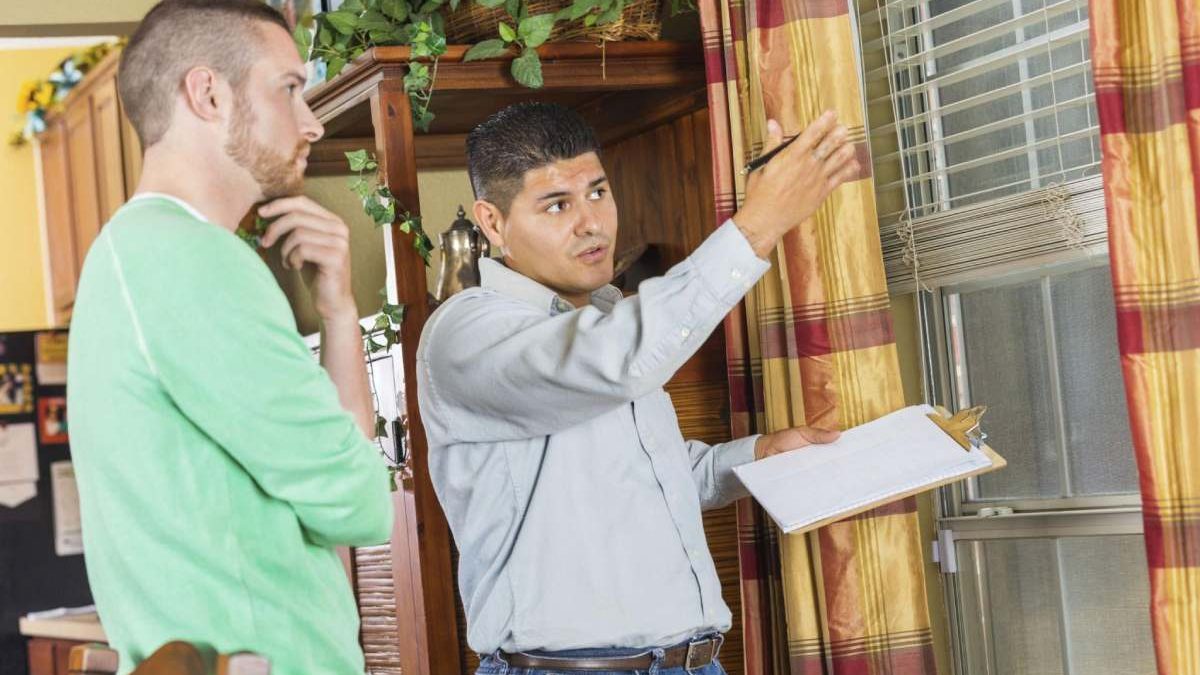Home Inspection – Buying a home is a big investment, and it is important to get a home inspection before you make the final decision. It helps you avoid the costly mistakes that could happen when buying a home.
A home inspector can help you identify any major issues with the house before you buy it. They will check for problems like termites, mold, or foundation issues that could lead to future repairs or higher utility bills.
The inspection also provides peace of mind for both buyers and sellers by identifying any potential hazards in the house that could be costly to repair later.
Because the home inspection is one of the main steps to buy a house, it pays to know what you’re even supposed to watch out for in these inspections. Here are some tips on understanding your home inspection.
Table of Contents
Structural Issues
Structural issues can be serious problems that affect the stability and safety of the home. During a home inspection, the inspector will check the foundation, walls, floors, and roof for any structural issues that could cause problems in the future. This could include things like:
Foundation cracks: Cracks in the foundation can indicate a variety of problems, including settlement, soil expansion or contraction, or water damage. These issues can weaken the structure of the home and may require costly repairs.
Water damage: Water damage can be caused by a variety of things, including leaks, flooding, or poor drainage. Water damage can weaken the structure of the home and can lead to the growth of mold, which can be harmful to your health.
Rot: Rot is the decay of wood due to exposure to moisture. It can weaken the structure of the home and may require costly repairs.
Electrical and Plumbing Problems
Electrical and plumbing issues can be serious problems that can cause safety hazards and costly repairs. During a home inspection, the inspector will check the electrical and plumbing systems to make sure they are in good working order. This could include:
Checking the wiring, outlets, and light fixtures for any issues: Wiring that is outdated, frayed, or improperly installed can be a safety hazard. Outlets and light fixtures that are not working properly can also be a problem.
Checking the plumbing for leaks or other problems: Leaks in the plumbing can cause water damage and can be costly to repair. The inspector will check all the plumbing fixtures, pipes, and water heater to make sure they are in good condition.
HVAC Issues
The home inspector will check the heating, ventilation, and air conditioning (HVAC) system to make sure it is in good condition. This could include:
Checking the furnace: The furnace is a major component of the HVAC system, and it’s important to make sure it is in good working order. The inspector will check the furnace for any issues, such as a cracked heat exchanger or malfunctioning thermostat.
Checking the air conditioner: The air conditioner is another important part of the HVAC system. The inspector will check the air conditioner for any issues, such as a faulty compressor or leaky ductwork.
Checking the ductwork: The ductwork is the system of pipes and tubes that distribute heated or cooled air throughout the home. The inspector will check the ductwork for any leaks or other problems that could affect the efficiency of the HVAC system.
Pest Issues
Pests such as termites, beetles, and other insects can cause damage to the structure of the home and may be difficult and costly to eliminate. During a home inspection, the inspector will look for any evidence of pests, such as holes in wood or the presence of termite droppings.
Safety Issues
The home inspector will also check for any safety issues that could affect the livability of the home. This could include things like:
Carbon monoxide detectors: Carbon monoxide is an odorless, tasteless gas that can be deadly. The inspector will check to make sure there are carbon monoxide detectors in the home and that they are in good working order.
Smoke alarms: Smoke alarms are a critical safety feature that can alert you to a fire in the home. The inspector will check to make sure there are smoke alarms in the home and that they are in good working order.


